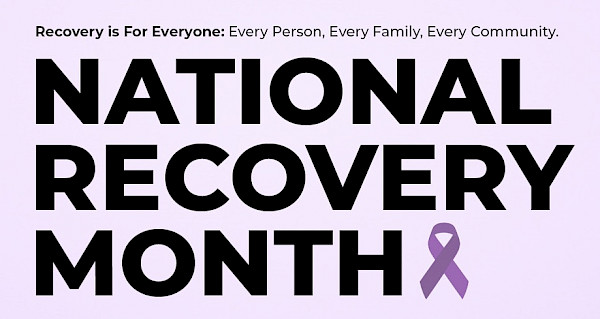
MANCHESTER (September 6, 2023) – National Alcohol and Drug Addiction Recovery Month is dedicated to raising awareness about substance use disorders, celebrating those in recovery, and highlighting the importance of accessible treatment and support.
While this observance typically focuses on community-based programs and initiatives, it’s crucial to also address the critical role that skilled nursing homes and long-term care facilities play in supporting individuals on their journey to recovery from addiction.
The Growing Need for Substance Use Treatment in Skilled Nursing Homes
According to McKnights, a leading long term care industry magazine, “Nursing homes have the opportunity — and, some advocates would say, the responsibility — to provide high-quality, compassionate care to this growing population. Not only can they provide wound care and other post-acute care for the medical consequences of [Opioid Use Disorder], but they can play a key role in helping residents with OUD make successful transitions into community-based substance use disorder (SUD) treatment upon discharge from short-term rehab stays.”
The aging population in the US faces unique challenges when it comes to substance use disorders. While addiction can affect people of all ages, older adults may encounter specific risk factors, such as increased isolation, chronic pain, and medication management issues, making them more susceptible to addiction. As a result, skilled nursing homes and long-term care facilities have witnessed a growing need to address substance use disorders among their residents as well as new referral patterns that are emerging that show an overall and overwhelming need for substance use disorder care in this setting.
Many younger individuals impacted by substance use disorder may also seek out or require care in a skilled nursing center. They may require nursing care and/or physical or occupational therapy for a condition that arises from substance use disorder such as an extensive infection requiring IV antibiotics or many other medical conditions. They may also require skilled nursing care for another distinct medical condition or event but need support and services for their co-occuring substance use disorder while receiving that care.
Comprehensive Care and Rehabilitation
Skilled nursing homes and long-term care facilities are uniquely positioned to provide comprehensive care for individuals struggling with substance use disorders. These settings offer a structured and supervised environment that can aid in the recovery process. Key elements of care include:
-
Medical Management: Many individuals in these facilities have complex medical needs, making it essential for healthcare providers to address both the addiction and co-occurring health issues simultaneously. This integrated approach ensures that residents receive the appropriate medical attention and addiction treatment.
-
Medication-Assisted Treatment (MAT): For some residents, MAT may be a crucial component of their recovery journey. Skilled nursing homes can offer MAT under the supervision of medical professionals, helping individuals manage cravings and withdrawal symptoms safely. MAT includes medications such as Methadone, Suboxone, Vivitrol and more.
-
Therapeutic Support: Counseling and therapy are fundamental in addressing the emotional and psychological aspects of addiction. Skilled nursing homes can provide individual and group therapy sessions, helping residents understand the root causes of their addiction, develop coping strategies and plan for ongoing supports in the community after discharge.
-
Peer Support: Creating a sense of community and shared experiences is vital for recovery. Skilled nursing homes can facilitate peer support groups where residents can connect with others facing similar challenges, reducing feelings of isolation.
-
Education and Relapse Prevention: Staff can educate residents about addiction, its effects on the body, and relapse prevention strategies. Knowledge empowers residents to take an active role in their recovery.
Ensuring a Supportive Environment
Supporting recovery in skilled nursing homes and long-term care facilities goes beyond medical treatment; it also involves fostering a supportive environment. Staff members are trained in recognizing signs of addiction, empathetic communication, and de-stigmatizing substance use disorders.
Family involvement can be pivotal in an individual’s recovery journey. Open lines of communication between residents, their families, and the healthcare team can help create a strong support system that extends beyond the facility’s walls.
The Importance of Tailored Care Plans
It’s essential to recognize that each resident’s journey to recovery is unique. Skilled nursing homes and long-term care facilities develop individualized care plans that consider the specific needs, preferences, and challenges of each resident. This personalized approach ensures that the care provided is not one-size-fits-all but instead addresses the complex and multifaceted nature of addiction.
Breaking Down Stigma
One of the most significant barriers to addiction treatment is the stigma associated with substance use disorders. Offering comprehensive, judgment-free addiction treatment and support within skilled nursing homes and long-term care facilities contributes to the destigmatization of addiction. When residents see that their healthcare providers and peers are empathetic and supportive, they are more likely to seek help and stay committed to their recovery.
—-
National Alcohol and Drug Addiction Recovery Month serves as a reminder of the importance of supporting recovery efforts across all healthcare settings, including skilled nursing homes and long-term care facilities.
By prioritizing individualized care plans, integrated treatment, and a supportive environment, iCare seeks to enhance the quality of life for those in recovery and help them achieve lasting sobriety. As we celebrate Recovery Month, let us continue to advocate for accessible and effective addiction treatment in all healthcare settings, ensuring that no one is left behind on their journey to recovery.

